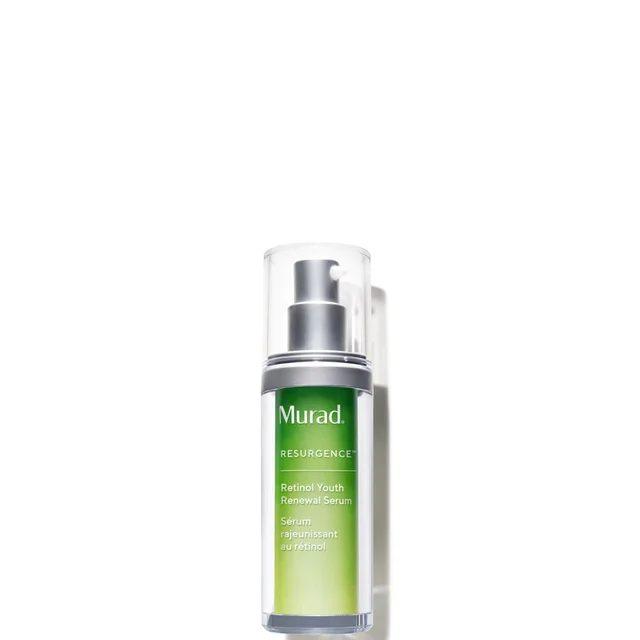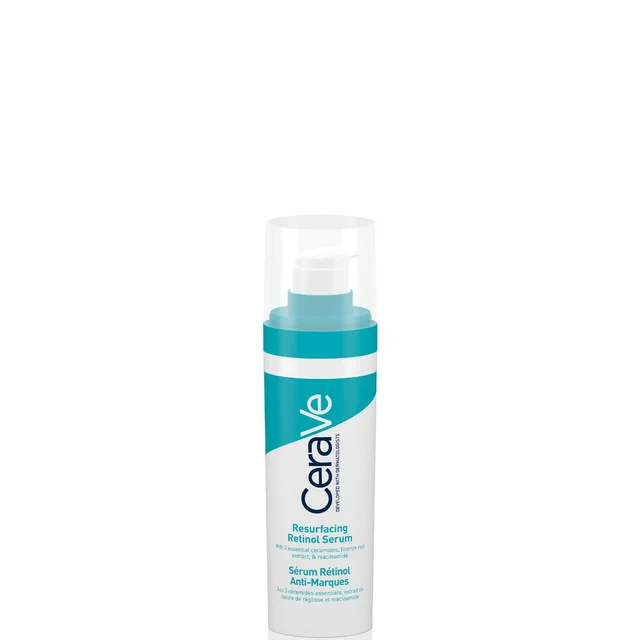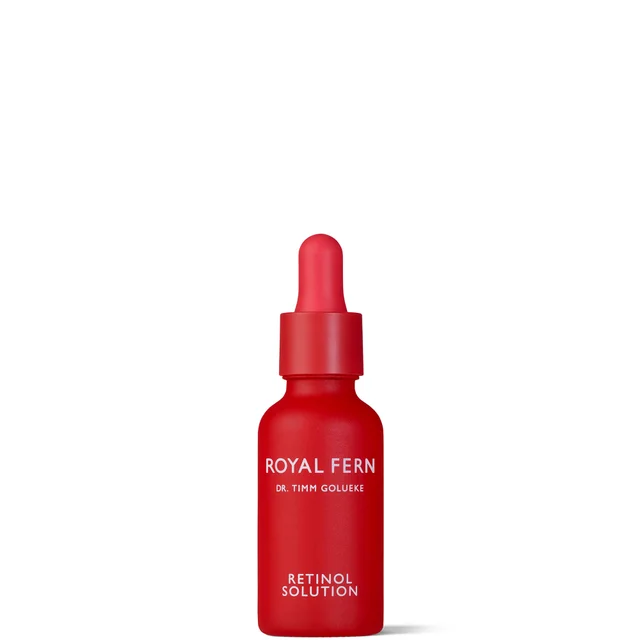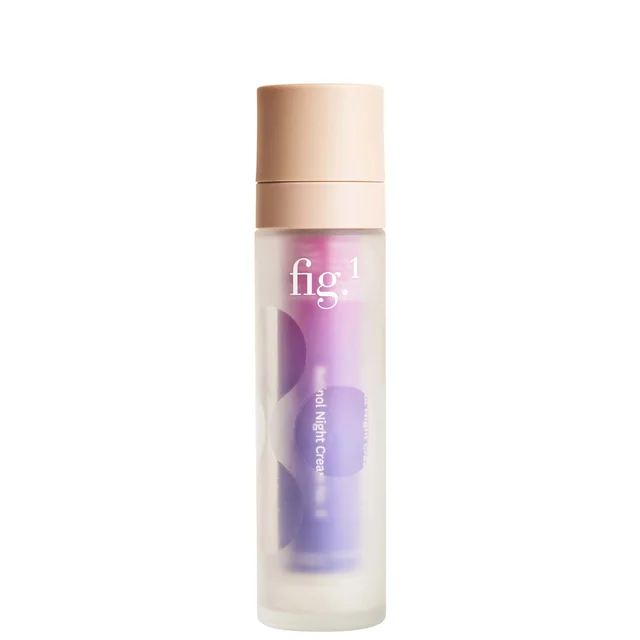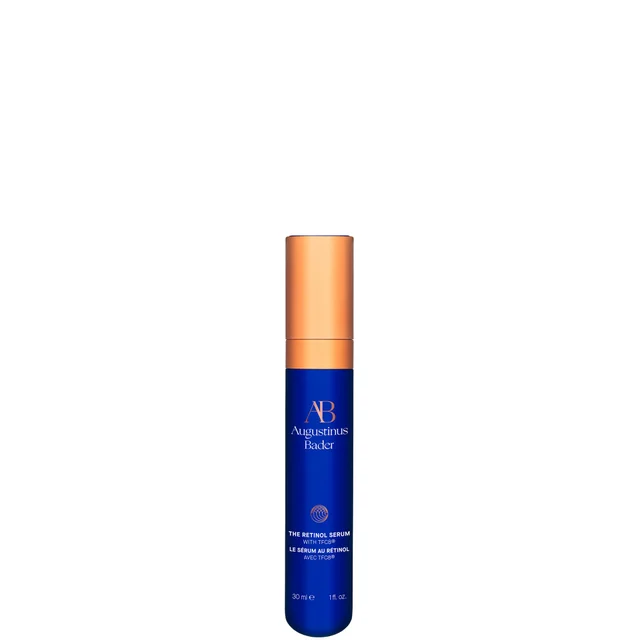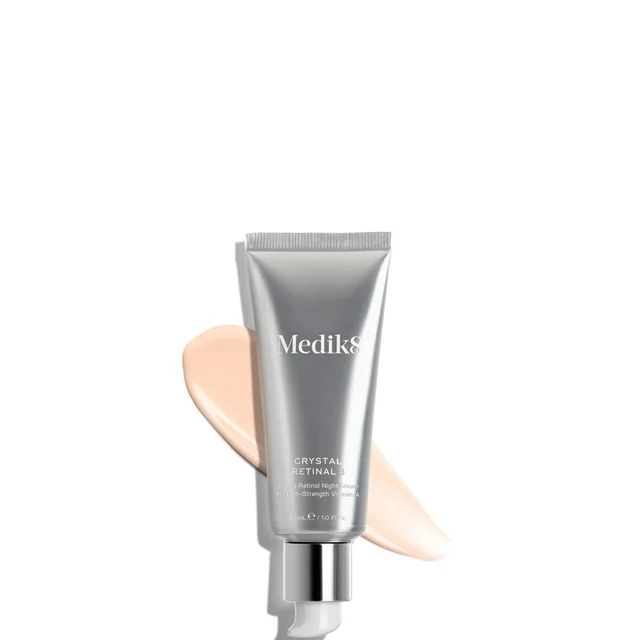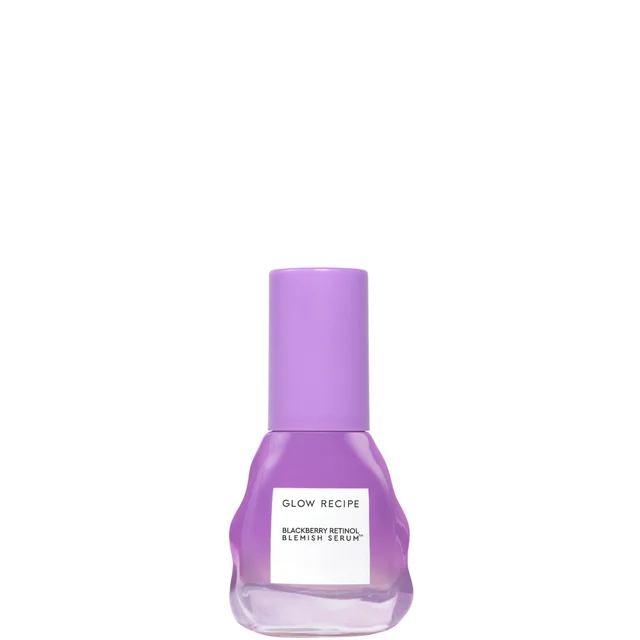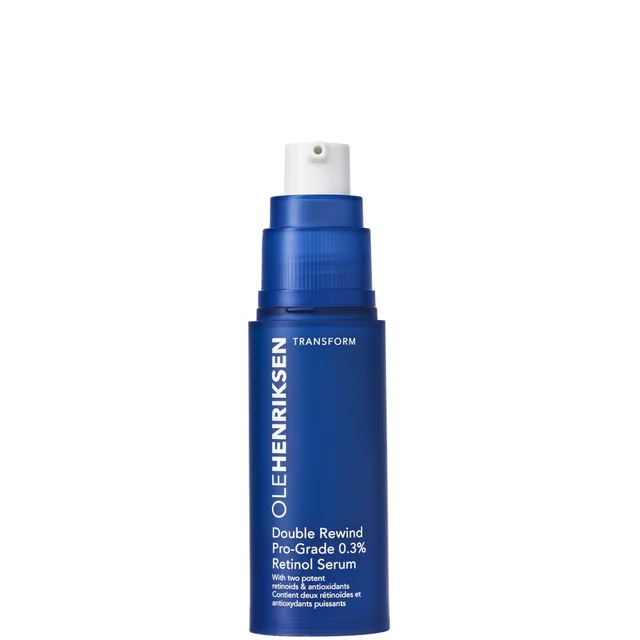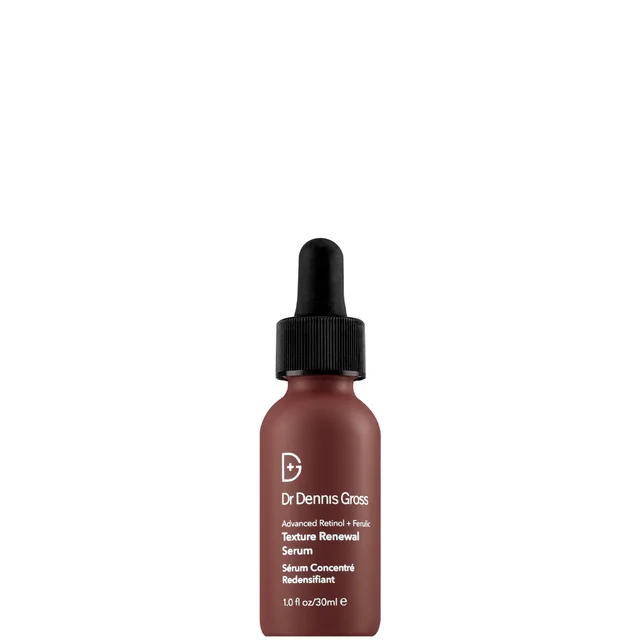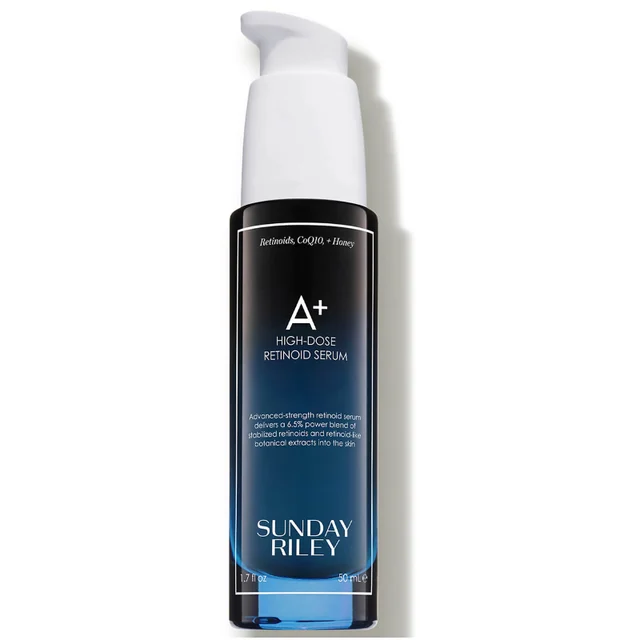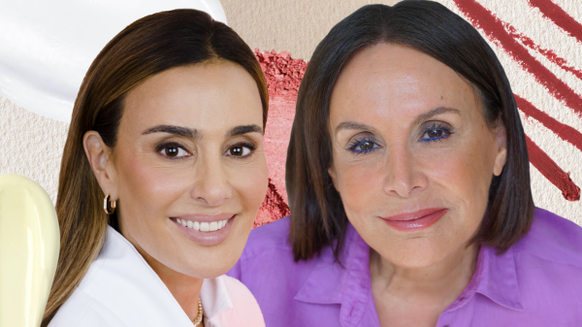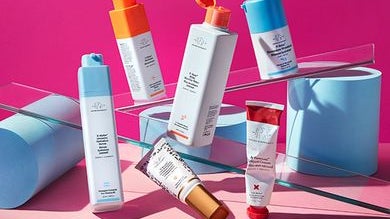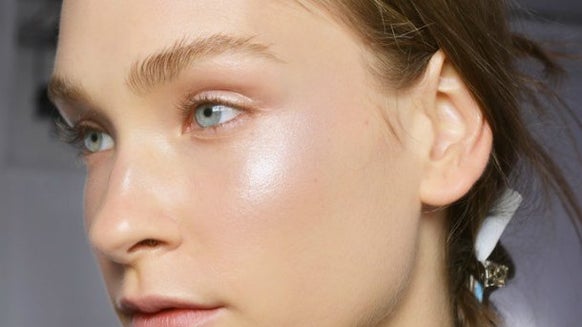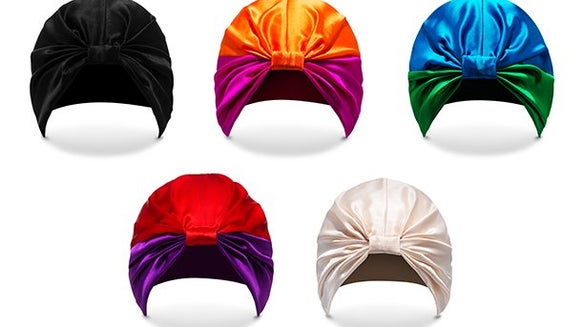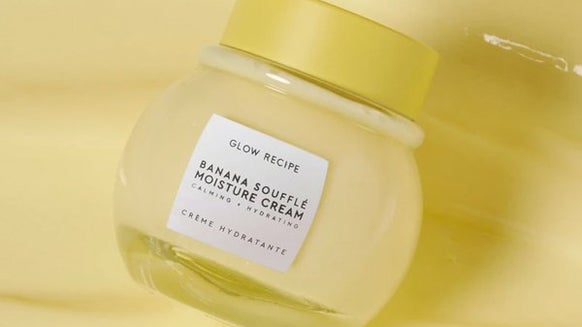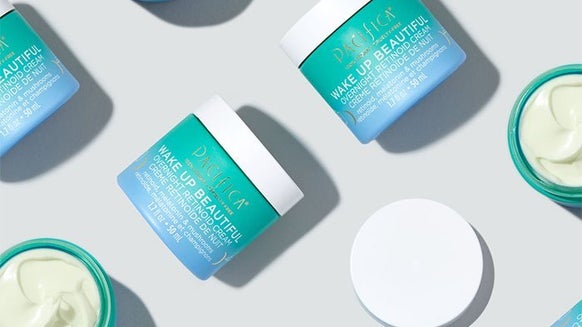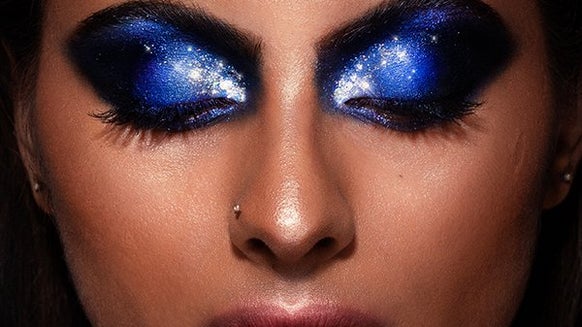10 BEST RETINOL SERUMS FOR A HAPPY, HEALTHY COMPLEXION
A skin care ingredient that needs no introduction… Retinol is a gold standard component when it comes to your complexion’s vitality. But finding the best retinol serum for your skin care routine can be tricky. Not only are the option endless but selecting the wrong active or strength for your skin concern can lead to irritation or dryness.
But don’t worry, here at Cult Beauty we’ve done the hard work for you and rounded up the best retinol serums for your skin type. Smooth, soft, supple skin incoming…
OUR TOP 10 RETINOL SERUMS
- Murad Retinol Youth Renewal Serum
- CeraVe Resurfacing Retinol Serum
- Royal Fern Retinol Solution
- Fig.1 Beauty Retinol Night Cream
- Augustinus Bader The Retinol Serum
- Medik8 Crystal Retinal 1 Serum
- Glow Recipe Blackberry Retinol Blemish Serum
- OLE HENRIKSEN Double Rewind 0.3% Pro-Grade Retinol Serum
- Dennis Gross Skincare's Advanced Retinol and Ferulic Texture Renewal Serum
- Sunday Riley A+ High-Dose Retinoid Serum
THE BEST RETINOL SERUMS
Dubbed one of our best retinol serums for good reason, Murad’s Retinol Youth Renewal Serum calls on the brand’s Retinol Tri-Active Technology to smooth the appearance of fine lines and even skin tone. Revealing radiance come sunrise, this fast-acting yet time-released solution is complete with your daily dose of hyaluronic acid for a plumped, dew-drenched finish.
Best retinol serum for: mature skin.
Banishing blemishes while boosting brightness, CeraVe’s Resurfacing Retinol Serum is suitable for even the most sensitive skin types. A gentle alternative to traditional forms of retinol, the featherweight formula fuses licorice root extract and niacinamide with not one, but three, ceramides to support your moisture barrier and calm the look of your complexion.
Best retinol serum for: sensitive skin.
Combining effective ingredients in a unique way, Royal Fern’s Retinol Solution uses time-release technology to visibly soften fine lines, evens tone and reveal unmatched radiance. Waiting until the retinol has reached below the skin’s surface before getting to work, the famed formula also features mushroom extract to reduce the risk of irritation and retinyl palmitate to unclog pores. So, in short, there’s not much this blend can’t do…
Best retinol serum for: oily and combination skin.
Ideal for those starting their retinol journey, Fig.1 Beauty’s Retinol Night Cream No. 1 is the first level in a line up of three increasing strengths. Minimising the look of fine lines and pigmentation, this slow releasing formula features bioactive peptides to support your protective barrier by hydrating and shielding it from environmental aggressors – and by that we mean UV rays, pollution and everything in between.
Best retinol serum for: beginners.
Woking in tandem with the brand’s performance proprietary TFC8 technology, Augustinus Bader’s The Retinol Serum optimises skin vitality for a refined, restored and revived complexion. Fading the look of dark spots, blemishes and fine lines, it’s also enriched with a comforting zinc complex to pro-long its benefits by counteracting potential further irritations.
Best retinol serum for: mature, oily and blemish-prone skin.
While Medik8’s Crystal Retinal Serum may swap traditional retinol for retinal, its extreme superpowers enable it to qualify as one of the best retinol serums on the market today. Why? We’re glad you asked. With 0.03% encapsulated retinaldehyde, this bestselling blend provides same results as retinol – but up to 11 times faster. Boosting the appearance of collagen-rich skin, it not only brings back bounce, it also softens and brightens too. Plus, there’s up to six progressive strengths, so it’s ideal for both those starting their retinol journey or are experienced users.
Best retinol serum for: mature , dull skin.
Potent yet gentle enough for all skin types, Glow Recipe Blackberry Retinol Blemish Serum maximises the clarifying and resurfacing benefits of retinoids. Powered by its 0.16% triple-retinoid, it not only unclogs pores for a clearer complexion, but melds 8% glycerine and ectoin to provide long-lasting hydration and support your skin’s natural healing process too.
Best retinol serum for: sensitive and blemish-prone skin.
Balancing two potent retinoids (pure encapsulated vitamin A and provitamin A) with aloe vera and the brand’s Scandinavian Botanical complex, OLE HENRIKSEN Double Rewind 0.3% Pro-Grade Retinol Serum resurfaces the outer layer of your skin to (deep breath) even skin tone, smooth texture diminishes the look of fine lines, wrinkles and dark spots *and* clarify your complexion for an enviable glow. Need we say more?
Best retinol serum for: experienced retinol users.
Supercharged by a cocktail of retinol, bakuchiol, rambutan and ferulic acid, Dr. Dennis Gross Skincare's Advanced Retinol and Ferulic Texture Renewal Serum goes above and beyond its call of duty. While the bakuchiol increases hydration and improves the skin’s moisture barrier function to keep water from escaping, the retinol and rambutan thickens your epidermis to strengthen your complexion. What’s more, it’s fitted with a unique dropper that allows for precise dosage of product with each use.
Best retinol serum for: beginners and dull skin.
Renowned for its impressive ingredient list, Sunday Riley A+ High-Dose Retinoid Serum combines 5% retinoid ester blend, 1% liposomal-encapsulated retinol blend and 0.5% blue-green algae to fight signs of premature aging and improve the appearance of UV damaged skin. But that’s not all, with the addition of encapsulated CoQ10, Hawaiian white honey, bisabolol, cactus extract and ginger it balances and calms complexions too.
Best retinol serum for: damaged and mature skin.
THE BEST RETINOL SERUMS FAQS
Is 1% retinol serum good?
As 1% retinol serums are considered the higher strengths, they provide quick results for skin care concerns that lower percentages cannot respond to. They’re designed to tackle dullness, fine lines and blemishes. It’s important to note though, that when starting to use 1% retinol serums you shouldn’t use them for more than three evenings per week. Then once your skin can tolerate this dosage, you can gradually increase the frequency to every other night and, finally, every evening.
What percent retinol serum is best?
The best retinol serum percentage is dependant on your skin type and concern. For example, those with more stubborn skin concerns – we’re talking deep wrinkles and uneven skin tone – would need a higher percentage retinol serum ranging between 0.3-1%. However, for those looking to reduce pore size or improve firmness, a retinol serum between 0.01 – 0.3% will suffice.
How do I find a good retinol serum?
The best way to find a good retinol serum for your skin type is to get to know your complexion. By this we mean, understanding your skin type, condition and to discover how easily reactive it is. Once you have these answers, patch test your chosen product before using it and gradually introduce it into your daily routine. When it comes to the best retinol serums slow and steady is always best.

Cult Beauty’s Senior SEO Copywriter, Trifonia started out in the industry when bold brows were just becoming a ‘thing’, and shares a passion for all things fashion and beauty. Currently embracing her curly girl journey (after endless years of straightening her strands), she is finally reverting to her natural ways! When Triffy isn’t busy testing out the latest curl-saving solutions, you’ll find her binging the latest reality TV show or on a long walk listening to her ever-evolving country music playlist.
